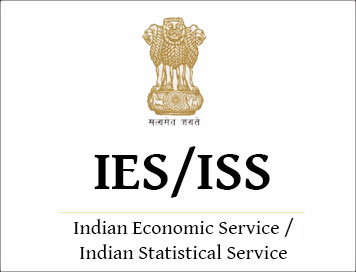UPSC IES-ISS Exam Papers 2018 : General Studies

UPSC Indian Economic Service/Indian Statistical Service
Exam Name : UPSC Indian Economic Service/ Indian Statistical Service Exam
Subject : General Studies
Year : 2018
Question Paper Specific Instructions
- Please read each of the following instructions carefully before attempting questions :
- There are FOUR questions and all are to be attempted.
- Candidate should attempt questions/parts as per the instructions given in the questions.
- The number of marks carried by a question part is indicated against it.
- Candidates are required to write clear, legible and concise answers and to adhere to word limits, wherever indicated. Failure to adhere to word limits may be penalized. The answers must be written within the space provided in the Question-cum-Answer Booklet.
- Answers must be written in ENGLISH only.
- Any page or portion of the page left blank in the Question-cum-Answer Booklet must be clearly struck off.
Q1. Answer all of the following (in not more than 200 words each): 5x5=25
(a) Do you think Kautilya's 'Arthashastra' provides guidelines to modern Indian polity or governance ? Discuss.
(b) Do you consider that the rise of British power in India, primarily owes to the decline of Mughal power or British naval and trade supremacy ? Give reasons.
(c) During 1940s Gandhiji said, “We do not seek independence out of British ruin.” Explain the circumstances and outcome of the Gandhian policy in this context.
(d) Nehru preferred "non-linguistic states in the interests of a strong centre," which could not be enforced. Elucidate.
(e)Was 'Rama Setu', a ‘man made' or 'nature made' monument ? Explain with reference to the recent researches and findings of the various commissions.
Q2. Answer all of the following (in not more than 200 words each): 5x5=25
(a) Assess the climatic impact of the existence of the Himalayas in the north along with oceans and seas in three other directions of India.
(b) What is the significance of biodiversity conservation in the forests and water bodies of India ?
(c) Comment on the relative performance of the Indian states in terms of population growth and human development.
(d) “High pace of urbanisation in India, though transforming landscape, is a necessary process of development.” Give your arguments.
(e)Account for the recent emphasis on rainwater harvesting and small check dams on rivulets in India in preference to big dams on the main rivers.
Q3. Answer all of the following (in not more than 200 words each): 5x5=25
(a) "India is a fast transforming knowledge economy." Comment.
(b) Give an account on the growth of Information Technology and Biotechnology sectors and their impact on GDP and employment in India.
(c) Explain the term 'Demonetisation'. Assess the effects of demonetisation on the economy and on black money.
(d) Farmers' suicides in India are the result of agrarian crisis. Give reasons for it and suggest remedial measures.
(e) Critically examine the ‘Universal Healthcare Scheme' as pronounced in the Union Budget, 2018.
Q4. Answer all of the following (in not more than 200 words each) : 5x5=25
(a) What is the significance of inner party democracy in political parties ? How could it be ensured in our political system ?
(b) What are the salient features of a welfare state ? Is India a welfare state? Give reasons for your answer.
(c)Do you agree with the view that the elections to the Lok Sabha and the State Legislative Assemblies be held simultaneously ? Give reasons for your answer.
(d) Khap Panchayats have been in the news for functioning as conscience keepers of society, often delivering pronouncements on the legality of marriage. Discuss the stand taken by the Supreme Court in this regard.
(e)What are the economic constraints which hinder the success of the South Asian Association for Regional Cooperation (SAARC) ?
IES-ISS Previous Years Exam Papers PDF Download-PDF
Click Here to Download Official Paper
<< Go Back to Main Page
Courtesy: UPSC


